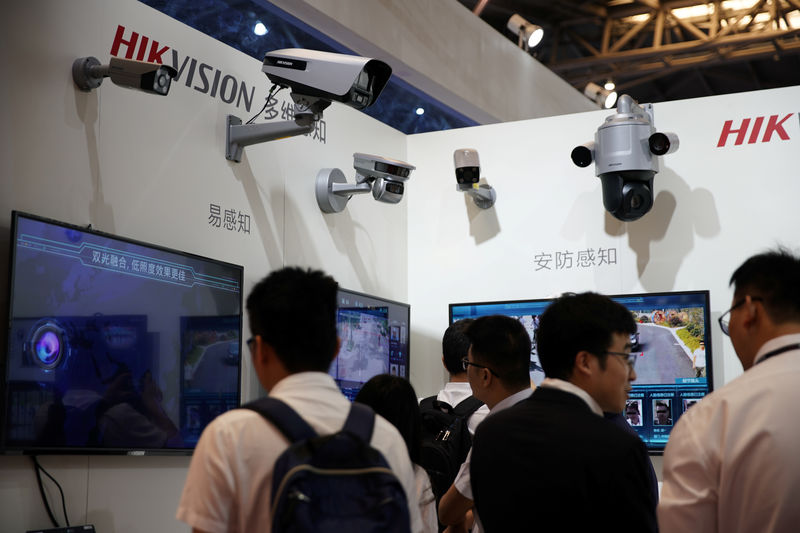By Bryan Pietsch
WASHINGTON (Reuters) - Contractors who buy and install Hikvision (SZ:002415) and Dahua (SZ:002236) surveillance systems told U.S. officials on Friday that an ambiguous law that bans purchases from the two Chinese companies could harm their businesses.
Contractors voiced their confusion at a U.S. General Services Administration meeting about the provision in last year's National Defense Authorization Act, or NDAA, that prohibits federal agencies from purchasing new equipment from those Chinese companies.
The deadline to comply with the ban on purchasing new equipment is Aug. 13.
Meeting attendees were not clear on whether the NDAA requires existing Hikvision and Dahua equipment to be ripped out or just that new cameras and other surveillance equipment must come from different suppliers. They also wanted to know if they work with government agencies, would the NDAA bar sales of the Chinese equipment to private businesses.
Confusion expressed at the meeting is emblematic of widespread misunderstanding about a slew of new regulations put in place in the past 12 months that have restricted the role of Chinese companies in the U.S. marketplace. U.S. companies seeking to comply, for example, with new rules essentially blocking sales to Chinese telecoms company Huawei [HWT.UL] have scrambled to sort out what can and cannot be sold under new guidelines, halting sales of items that in fact are still allowed.
The law comes amid growing U.S. government fear Chinese technology could be used as a tool for to spy on Americans.
Representatives from Hikvision or Dahua did not present at the public meeting, but a spokesman for Hikvision said the company is "disappointed" with the NDAA and that the law was "quickly drafted without sufficient evidence." Dahua did not immediately respond to a request for comment.
Rick Williams (NYSE:WMB), the general manager of Selcom, a 10-person company based in Selma, Alabama, said at the meeting that small companies like his "need guidance".
Williams said additional language in the provision, for example, says federal agencies may not enter a contract with "an entity that uses" the banned equipment. They asked if selling Hikvision or Dahua equipment to private customers would disqualify them from contracts with the government or government-funded customers.
Williams said he's worried about losing business with schools, which receive federal funding.
Mark Zuckerman, CEO of Maryland-based Clear Connection, another surveillance installer whose customers include businesses, schools and non-profits, said his company spent $122,054 (£97,664) on Hikvision equipment in 2017.
He wanted to know whether government agencies will need to remove banned equipment or simply refrain from buying more of it. The law directs "affected entities" to "transition" away from the equipment.
Many federal agencies do not know the supplier of their equipment. Additionally, some equipment is not branded as Hikvision or Dahua but includes components from those companies, according to Katherine Gronberg, vice president for government affairs at Forescout Technologies, which has worked with some federal agencies to identify the manufacturers of their equipment.

"The supply chain is very complex," Gronberg said, adding that components come from a range of global suppliers.